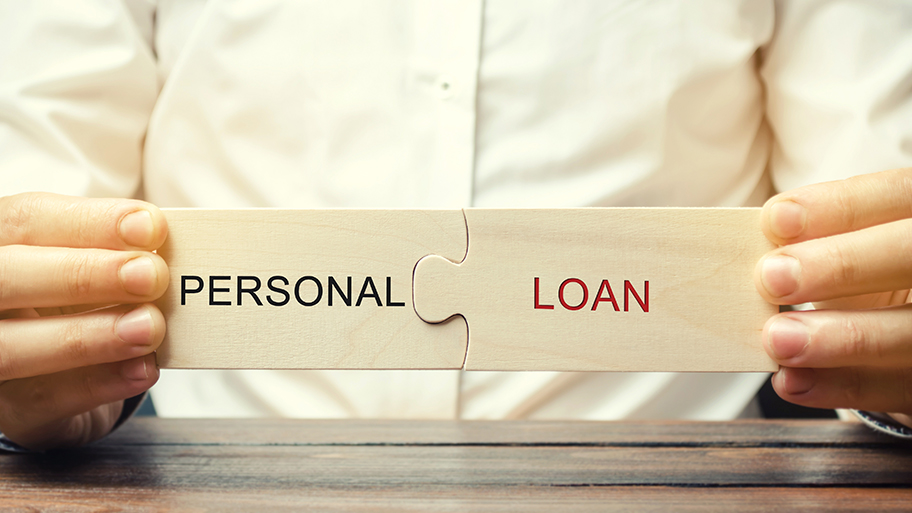If you are wondering if getting a personal loan is right for you then you should definitely consider the pros and cons of a personal loan. Getting a personal loan is not necessarily the right move for everybody, however by knowing the pros and cons can help you decided if a personal loan is a good decision for you right now.
Let’s dig into the pros and cons of personal loan. Getting a personal loan can actually increase your credit score in a few ways or it can hurt your credit score in few ways as well as I will talk about in this article. But for now, let’s focus on the ways that getting a personal loan can actually increase your credit score.
If you responsibly make timely payments on your personal loan that will help your payment history Factor of your credit score, which is responsible for 35% of your credit score. Another way that getting a personal loan can increase your credit score is that it can reduce your credit utilization. If you use your personal loan proceeds to pay down higher interest credit card debt. Credit utilization is important, it makes it about 30% of your credit score. For example, if you have a credit card right now and this is your only credit card and it has a credit limit of $5,000. And your balance on that card is $4,000, that’s 80% utilization, that’s way too high and it will hurt your credit score. But if you’re approved for a personal loan for $3,000 and use that money to pay $3,000 down on your credit card balance. Not only will you save on interest on the credit card, but your credit utilization goes down to only 20%.
Another way that getting a personal loan can increase your credit score is helping your credit mix factor, which contributes to about 10% of your credit score. So how the credit mix factor works is lenders generally like to see that you’ve been responsible with a variety of different forms of credit. So, if right now, the only credit that’s been extended to you is revolving credit like credit cards. Then getting an installment loan like a personal loan, could actually increase your credit mix and help your credit score increase a little bit.
A personal loan can make you money if you borrow at a lower interest rate. Then you invest the money from the personal loan on an investment opportunity that the rate of return of the investment is higher than of the personal loan. It’s not a perfect analogy, but it’s kind of like a mortgage on a rental property. It can be the same thing with a personal loan to invest it in opportunities that came your way. I’m not necessarily recommending this, because there is always risk when it comes to investing and that risk is amplified even more when you borrow money to invest, but it is a possible pro of personal loans that can make you money. But of course, it can also lose you money.
The same way it can help you getting a personal loan, since it can increase your credit score in several different ways, getting a personal loan can potentially hurt your credit score as well, in different ways.
The most common way that a personal loan can hurt your credit score is that your lender will very likely pull your credit report when you apply for a personal loan and give you an inquiry on your credit history. A hard inquiry like that can take a few points off your credit score temporarily. Another way a personal loan can adversely affect your credit is that your length of credit history will go down by average. Your length of credit history accounts for about 15% of your credit score. Obviously, a new personal loan will reduce your credit history average. For example, if right now, the only thing on your credit report is a credit card you’ve had for ten years. Your average length of credit history is ten years. If you add a new person loan to your credit, then your average goes down to five years.
Another way that a person loan can hurt your credit score is if you miss payments on your personal loan or may late payments. Payment history accounts for a 35% of your credit score. If you make late payments on your personal loan, your credit score will go down drastically.
Be Ware! A personal loan can cause you to spend money irresponsible. It is part of Human nature when you see a lot of money in your bank account. However, when your bank account balance has hardly anything in it, you tend to be a little more careful about how you spend your money. That’s why It is smart to keep very little cash in your bank account and use most your money to pay down debt or to invest it.
Remember that having a big balance in your checking account could cause you to spend money on things you don’t need, especially if the cash in your account came from a personal loan.
A disadvantage of personal loan that’s pretty obvious, are the interest you have to pay on your personal loan. That is real money out of your pocket that you’re paying to rent the lenders money. Also, some personal loan products will charge you a fee even beyond the interest you pay on the loan. This could be a nonrefundable application fee or processing fee. It could be an origination fee on the front end. It could be a prepayment penalty if you want to pay off your loan early. Obviously, late payment fees are a thing. So, before you even apply for a particular personal loan product, you want to make sure that you’ve asked the lender about all the possible fees they would charge you, starting with the application fee, if any.
